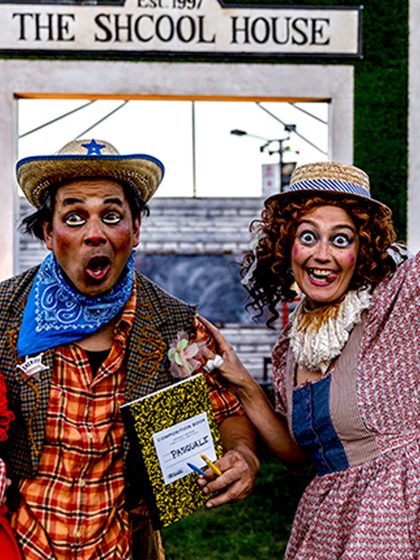Why Experiences Are More Important Than Stuff
It is quite likely that in the year 2011, I purchased a number of material objects that at the time I felt were important for me to own: shoes, perhaps, maybe a new jacket, and a camera, if I recall correctly. The fact is, though, that despite however significant these objects seemed to me at the time, they don’t matter all that much to me now. While I appreciate having them, they don’t bring me daily joy. Typing these words about them into my computer does not inspire feelings of happiness or deep satisfaction. In fact, even this computer doesn’t make me as happy as it did when I first procured it.

I do know, however, that in 2011 I bought tickets to my first Pretty Lights show, and that I went to this show with some of my best friends, and that we were in the front row, and that I felt a feeling of total awe—especially when I heard this. I know that a light, misty rain was in the air, that writing about this night even now makes me feel sort of wistful and dreamy, and that the Radiohead/Nine Inch Nails mashup still gives me goosebumps.
Go ahead and try it. What was the most important material object you bought last year? A big-ass television? Maybe a new car? How does that thing make you feel currently? Now, what was the best trip you took, or the most powerful concert you attended? How does it feel to recall that memory? Good, right? Yeah. Thought so.
It’s no secret that our life experiences stay with us and shape who we are as people in ways that the stuff we own does not. Research has also proved that money makes us happy only to the point where our basic needs are met. After that, it doesn’t cause a spike in overall satisfaction. Now, a new study proves that the experiences we have, rather than the stuff we own, are more likely to make us happy in the long term. Does this mean you should spend your money on epic adventures rather than stuff at the mall? Yes, it does.
According to a recent article in Fast Company, we humans are highly adaptable creatures. While adaptability is clutch in terms of survival, it also means objects that give us joy do so only until we have gotten used to them. After they’re integrated into our daily lives, that new, exciting stuff becomes just regular old stuff, and we begin the process of seeking out new stuff all over again. Thus, a paradox of consumption.
“We are the sum total of our experiences.”
In studies by researchers including Cornell University psychology professor Dr. Thomas Gilovich, the article states, “People were asked to self-report their happiness with major material and experiential purchases. Initially, their happiness with those purchases was ranked about the same. But over time, satisfaction with the things they bought went down, whereas their satisfaction with experiences they spent money on went up.”
So, happiness from material purchases fades in time, while experiences become an ingrained part of our identity and actually become more valuable to us as time passes.
“Our experiences are a bigger part of ourselves than our material goods,” says Gilovich. “You can really like your material stuff. You can even think that part of your identity is connected to those things, but nonetheless they remain separate from you. In contrast, your experiences really are part of you. We are the sum total of our experiences.”
Not only do experiences affect us on a deep, emotional level, they help connect us to others; and science has long indicted that deep connection is one of the more satisfying things we can experience as humans. And even if the experience in question is initially negative—like the time you couldn’t find your car after a festival and spent an hour walking around the parking lot—studies prove that even bummer situations are oftentimes recalled with fondness because they are so funny or character-building in retrospect.

Furthermore, special experiences quite often inspire in us a sense of awe and wonder. According to The New York Times, additional research indicates that awe is an important component of daily life because it makes us feel connected to people and nature, and it gives us the sense that we are a part of something bigger than ourselves. Experiencing awe is especially important in an era in which we spend more time staring at our devices than we do connecting with actual humans and other living things. The study suggests that people who feel awe on a regular basis are likely to be more altruistic. Says the article: “In the great balancing act of our social lives, between the gratification of self-interest and a concern for others, fleeting experiences of awe redefine the self in terms of the collective, and orient our actions toward the needs of those around us.”
This is all to say that investing in experiences (tickets to your favorite music festival, perhaps?) is not only ultimately more valuable than buying material possessions, but it ultimately benefits the world at large. Cool, right? Now, go out there and have some fun. While you might spend a bunch of money on the adventure, you’ll be richer for it in the end.
Follow Insomniac.com on Facebook | Twitter





